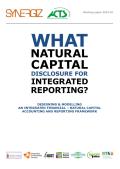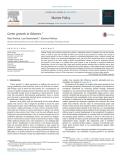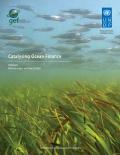Over the past several years, labeling schemes that focus on a wide range of environmental and social metrics have proliferated. Although little empirical evidence has been generated yet with respect to carbon footprint labels, much can be learned from our experience with similar product labels. We first review the theory and evidence on the role of product labeling in affecting consumer and firm behavior. Next, we consider the role of governments and nongovernmental organizations, concluding that international, multistakeholder organizations have a critical part to play in setting protocols and standards. We argue that it is important to consider the entire life cycle of a product being labeled and develop an international standard for measurement and reporting. Finally, we examine the potential impact of carbon product labeling, discussing methodological and trade challenges and proposing a framework for choosing products best suited for labeling.
This article appeared in the Energy Economics Supplemental Issue: Green Perspectives.

Businesses and government leaders from around the world are increasingly sounding the alarm about the need for effective management of business dependencies and impacts on ecosystems. Though various frameworks and standards have been developed and implemented to improve extra-financial accountability to stakeholders, current sustainability reporting falls short in providing the information needed for accurate investment decision-making. The recent releases of Integrated Reporting (IR) guidelines have been presented as a significant step in the right direction by professionals and academics.

Green growth involves transforming production and consumption processes in order to maintain or restore the regulatory functions of the planet's natural capital. It requires that environmental factors be treated as an essential factor of production and not merely an externality. In practice, this transition depends on advances being made in four areas: widening the concept of efficiency; energy transitions; inclusion of the value of natural capital in economic life; and a revision of the scale of risks within the financial system whose innovations for allocating resources at low cost to green growth would be greatly facilitated by effective pricing of environmental pollution.

